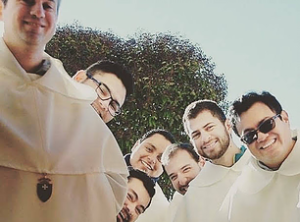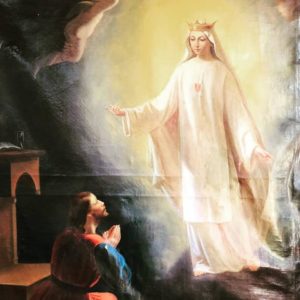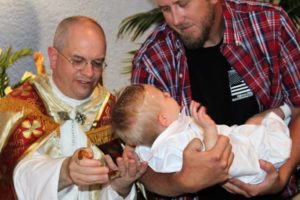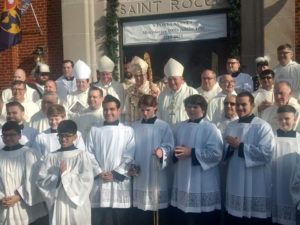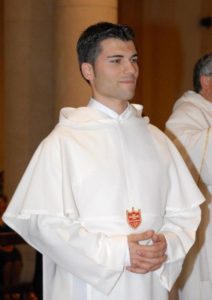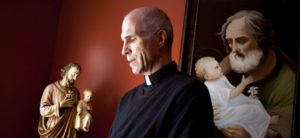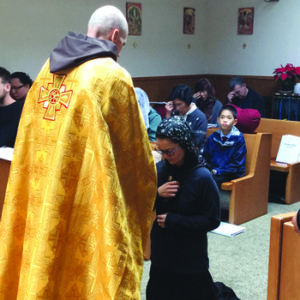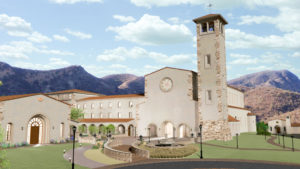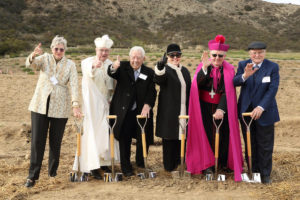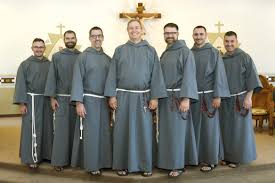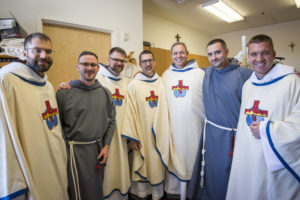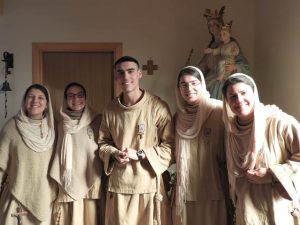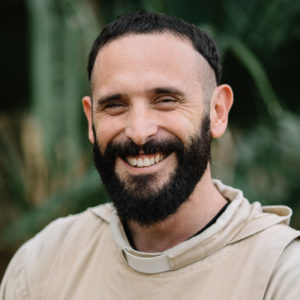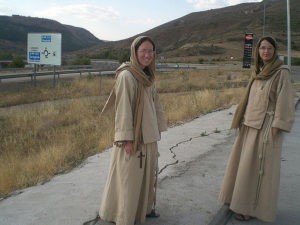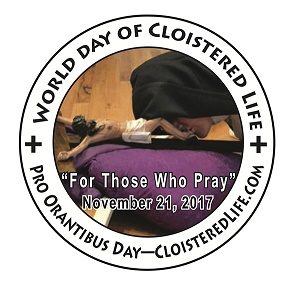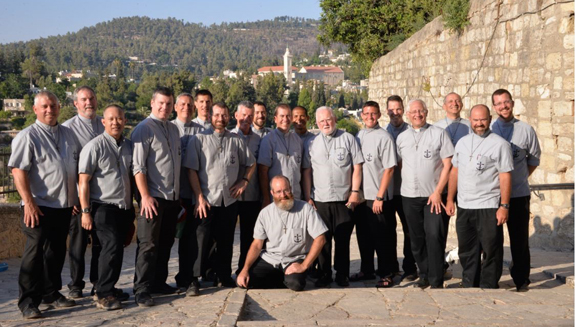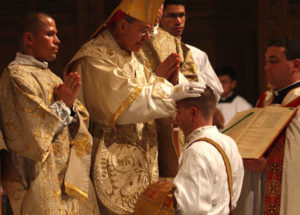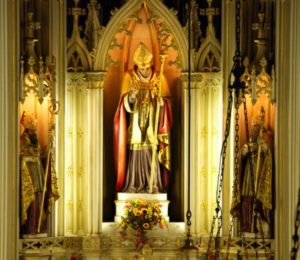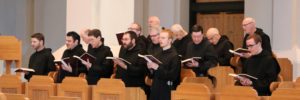Written by Fr. Michael-Joseph of St Thérèse, OCD from the National Shrine of Mary Help of Christians at Holy Hill in Wisconsin
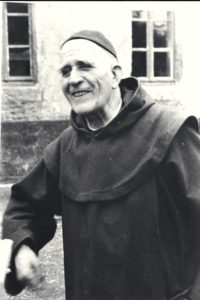 In pursuing a vocation to religious life, often a young man responds to what he perceives as a divine call, enters initial formation and, if there is a vocation to the priesthood, proceeds with studies and priestly formation. If all goes accordingly, he will make solemn profession of vows and be ordained to the diaconate and then to the priesthood. For some religious, however, the path is different. They enter religious life after they have been ordained to the priesthood. While all face obstacles in doing God’s will, I believe a diocesan priest who desires to enter consecrated life will face them intensely. Because of the uniqueness of this journey, priests need encouraging witnesses to show them that they are not alone, and that God will make all things work out if the call is truly from Him.
In pursuing a vocation to religious life, often a young man responds to what he perceives as a divine call, enters initial formation and, if there is a vocation to the priesthood, proceeds with studies and priestly formation. If all goes accordingly, he will make solemn profession of vows and be ordained to the diaconate and then to the priesthood. For some religious, however, the path is different. They enter religious life after they have been ordained to the priesthood. While all face obstacles in doing God’s will, I believe a diocesan priest who desires to enter consecrated life will face them intensely. Because of the uniqueness of this journey, priests need encouraging witnesses to show them that they are not alone, and that God will make all things work out if the call is truly from Him.
In my case I found a saintly witness who helped me get past the various road blocks in following this vocation―Bl. Marie-Eugene of the Child Jesus. He is the newest Discalced Carmelite Blessed, having been beatified in November of 2016. His compelling story is a great example for all people facing obstacles, but especially for priests who experience the call to embrace a completely new way of being for the Lord.
Bl. Marie-Eugene encouraged me initially through his writings on Carmelite spirituality. As I learned more about his life however, I discovered that he had greater obstacles to overcome in his resolve to enter Carmel than I could have imagined. I consider him a vocational hero in the face of these difficulties.
Henri Giralou (he took the name Marie-Eugene in Carmel) was born in 1894 in the Aveyron region of France. He discerned a call to the priesthood at a young age and entered the minor seminary, but his studies were interrupted by the outbreak of World War I. After distinguishing himself on the front he reentered the seminary in 1919.
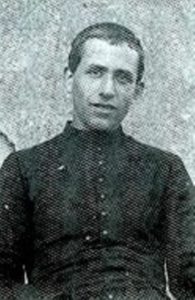 As he was on his retreat to prepare to be ordained a subdeacon, he took along a little book about St. John of the Cross that he had been given by a Carmelite nun. During his reading, he had a eureka moment: “This is exactly it!” he thought. He knew he had found his heart’s deepest desire and received an indisputable “call” from the Lord to become a Discalced Carmelite. Though he had never met a Carmelite friar and did not know if there were any in France, he knew God made him to be a Carmelite.
As he was on his retreat to prepare to be ordained a subdeacon, he took along a little book about St. John of the Cross that he had been given by a Carmelite nun. During his reading, he had a eureka moment: “This is exactly it!” he thought. He knew he had found his heart’s deepest desire and received an indisputable “call” from the Lord to become a Discalced Carmelite. Though he had never met a Carmelite friar and did not know if there were any in France, he knew God made him to be a Carmelite.
He first approached his seminary spiritual director, a gentle and holy man, in whom he trusted very much. The priest told Henri “absolutely not” and forbade him to speak any more about this folly of an idea. Henri found himself in a crisis for his interior light was so strong, but it was not being confirmed by God’s representative in his life. He was obedient, said not a word, and was left alone with the haunting thought of entering Carmel. It got to a point though that after he was ordained a subdeacon, he said to the Lord: “The spiritual director must bring this up before Easter of this year or I will know this is not really from you.” Lent comes, Holy Week comes, the Triduum comes, and still no word! Henri was on the edge of his pew on Good Friday wondering what would happen. Suddenly his spiritual director came into the chapel, sat beside him, and said out of the blue: “So what is it with this Carmel thing?” Henri explained his experience, now matured over several months. At the end of the meeting, the priest turned to him and said: “If you were not resolved to go to Carmel, I myself would force you to go!”
As the weeks passed, Henri was ordained a deacon and was set to be ordained a priest. He felt he must speak about this to the bishop. Henri was a gifted man with great strength of personality, intellect and heart. He was an incredible leader who distinguished himself in WWI and quickly became the lieutenant of his regiment. The bishop planned to have Henri lead a missionary band of priests to go throughout the diocese to bring back the many fallen away Catholics. Naturally, at the request of Henri to depart for Carmel, the bishop said, “Absolutely not, you will report to your new assignment after ordination and that is all.” Henri was saddened but confident that God would find a way. Several weeks later, the bishop asked the seminary spiritual director: “How is Henri doing?” To which he answered: “He submits to you.” The bishop then recounted that since his meeting with Henri, he had not gotten a good night’s sleep. He could not get Henri’s request off his mind and was convinced that God would not let him rest until he let him go. The bishop told the rector: “Tell Henri he may go!”
The next obstacle was the greatest and most heart wrenching―his mother, a widow who spent the last ten years working numerous jobs to pay for Henri’s seminary education. They were very close and shared a deep love for each other. Her one dream was to retire from her arduous daily labor and live with her son at his rectory as a housekeeper and companion. When Henri told her about his desire to enter Carmel, she was very upset. She believed that he was going to hide away in a cloister and would never see her again. Henri tried to explain that this was a misunderstanding of Carmelite life, but she would not listen to reason. She cursed his path to Carmel and even threatened to take her own life. Henri was completely broken by these encounters.
He did not know what to do. He was about to be ordained a priest and his mother said she would not have any part in his ordination or first mass. Henri knew his mother never went back on her word. He asked God for a miracle: if she came to the ordination this would be the last confirmation that this call to Carmel was from God. Ordination day arrived, and she was not in the pew. Then just as the Mass began, Henri spotted her in a corner. The miracle had happened!
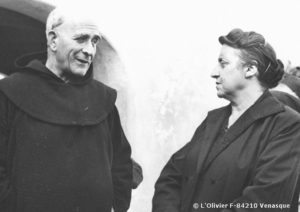
After ordination, Father Henri spent some days in his hometown making visits and celebrating first Masses before leaving for Carmel. In this brief period, some priest friends accused him publicly of running away from his duties and hurting his family. Three weeks after receiving Holy Orders, Father Henri was received into the novitiate of the Discalced Carmelites, taking the name Fr. Marie-Eugene of the Child Jesus. After much prayer and suffering over two years, his mother was reconciled to her son’s vocation, and they resumed their loving relationship. His life as a Carmelite bore abundant fruit as he took on various leadership roles, bringing Carmelite spirituality to the Church in an unprecedented way and founding a thriving Secular Institute, Notre Dame de Vie (Our Lady of Life). Part of the Carmelite family, its members live ordinary lives, being fully consecrated to God, for the world, in three autonomous branches for laywomen, laymen and priests.
I believe any priest who feels called to religious life should turn to Bl. Marie-Eugene for prayers and guidance. May he obtain for us the light and strength we need to embark on this completely new path, no matter what the obstacles.
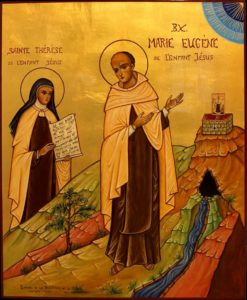
For more information on his life:
I want to see God & volume II I am a Daughter of the Church Thomas More Publishing (November 1, 1998)
Where the Spirit Breathes (Alba House,1998)
Under the Torrent of His Love (Alba House,1995)
15 Days of prayer with Fr Marie-Eugene (Alba House, 2009)
Jesus Contemplation of the Paschal Mystery (Editions du Carmel;1986)
